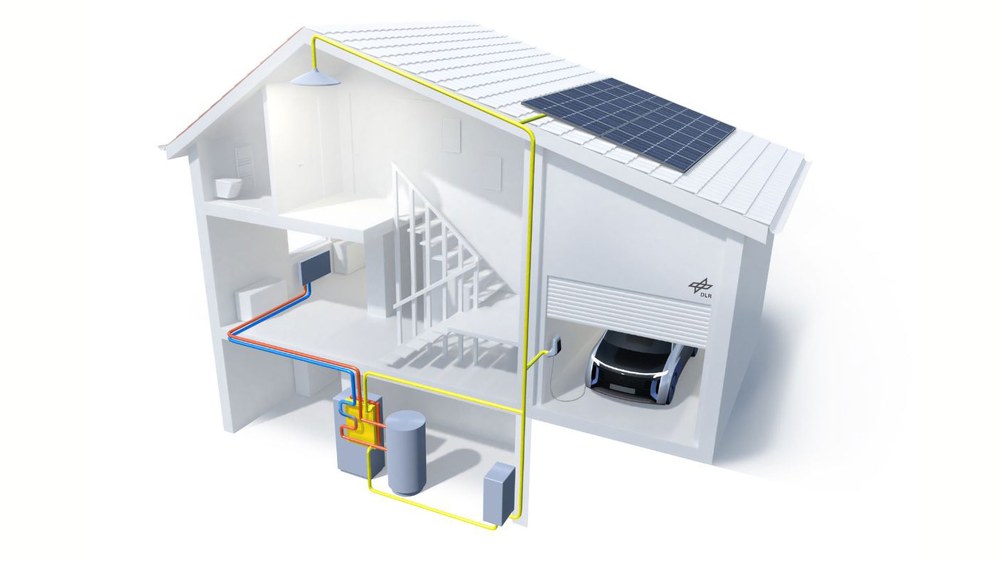Renewable energy supply is a key component in limiting climate change. However, this is currently subject to strong fluctuations and cannot cover energy requirements in a decentralised manner, particularly in winter.
Thermoelectric generators (TEGs) have the potential to close this energy supply gap in a climate-neutral and economical way.
The TEGs are integrated into the building heating system and the heat generated there is channelled through the TEGs into the heating water. Thanks to a solid-state effect, part of the heat is converted into electricity in the TEGs - without any additional moving parts. The simultaneous use of heat and electricity maintains the high efficiency of the heating system and, in particular, the utilisation of the calorific value. Fuels such as wood pellets, hydrogen or other (renewable) gases can be used. The systems have potentially low acquisition costs and the decentralised energy generation saves considerable energy costs. This enables a decentralised supply of renewable energy, mainly in winter, and even complete energy self-sufficiency.
This thermoelectric sector coupling also has positive effects for the operation of electric vehicles. For example, in combination with a photovoltaic system and a battery storage unit, which mainly supply sufficient electricity for mobility in summer, the user also achieves greater self-sufficiency in winter. This increases the economic efficiency and acceptance of electromobility.
The current "PellTEG" research project aims to demonstrate the high economic efficiency of the technology for pellet boilers in typical detached houses and apartment blocks. The target values set for this are 600 W nominal electrical output and thus 1000 kWh/a electrical energy supply per year. In addition, a short amortisation period is to be achieved. The project is being funded by the Federal Ministry of Economics and Climate Protection (BMWK) as part of the PellTEG project (FKZ: 03EN4019B).

